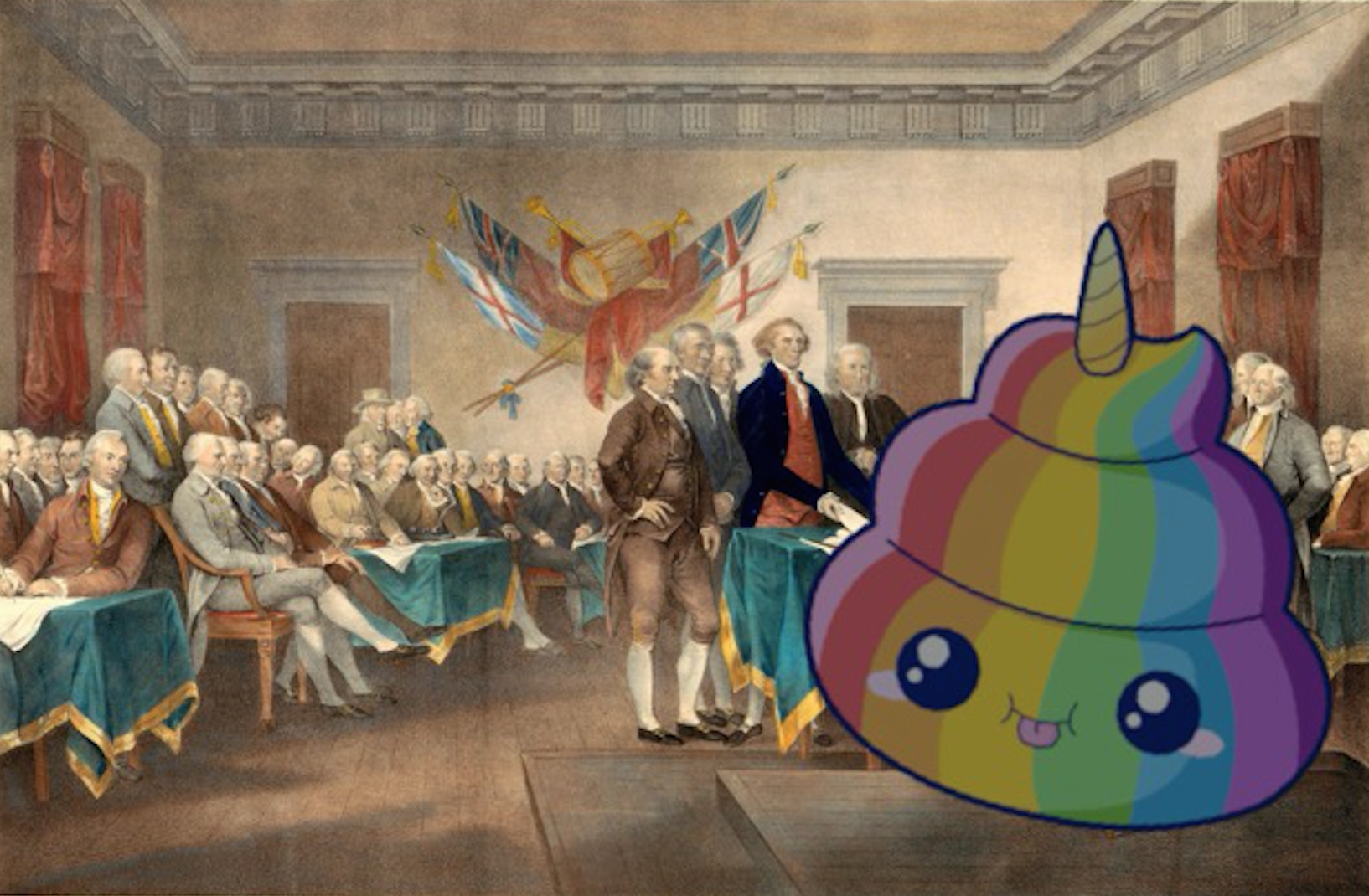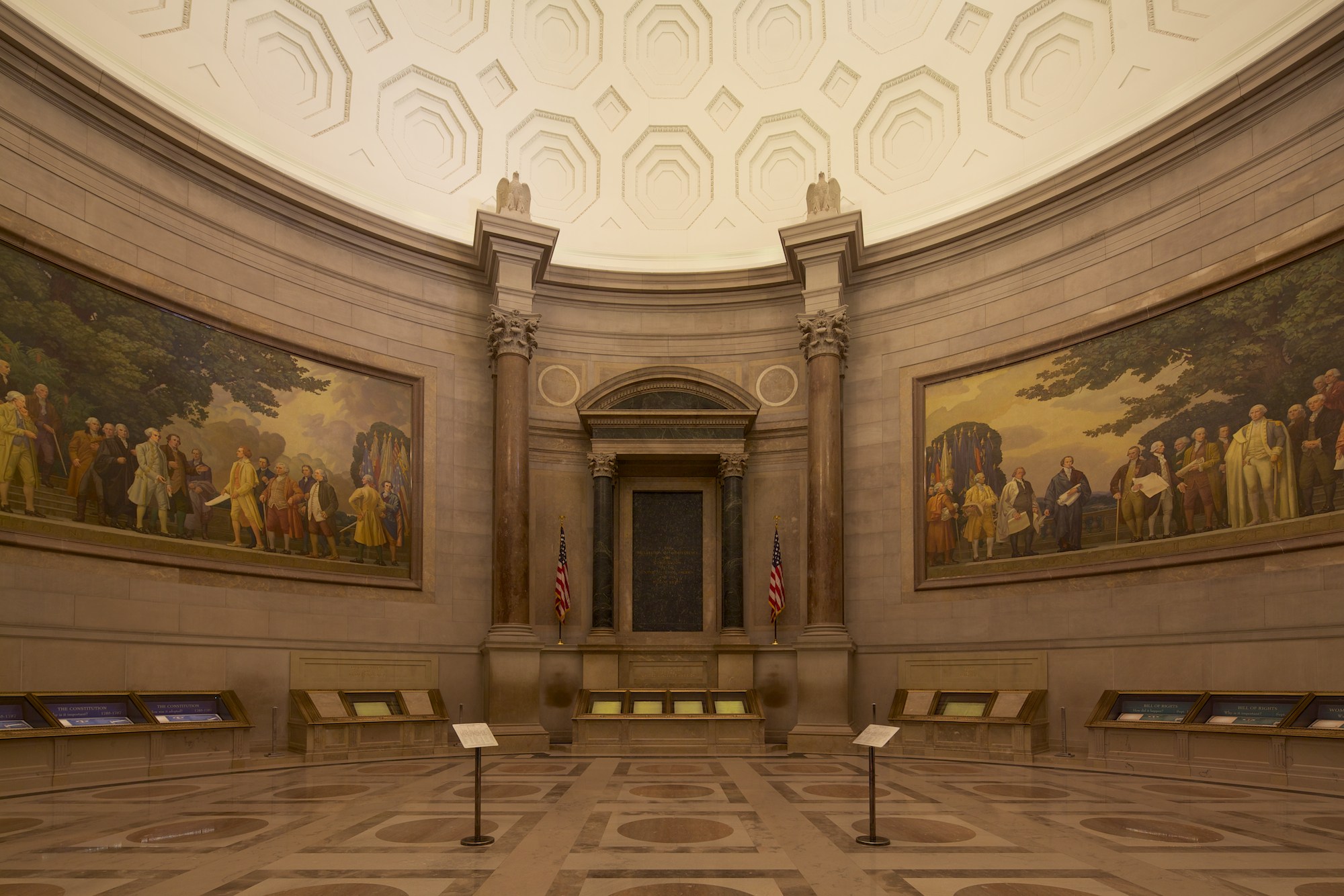Moral and religious neutrality undermines the basis of American law.
Let a Thousand Ahmari-French Debates Bloom

Today's fights on the Right benefit old wisdom and new thinking alike.
It’s been about two weeks since New York Post editor Sohrab Ahmari roiled conservative circles by publishing his essay “Against David French-ism.” That, in turn, has prompted extended responses from French himself, starting with this one. In a nutshell, it started with Sohrab Ahmari noting that, to his understandable horror, “drag queen story time” is now a semi-common event at public libraries around the country. Accordingly, Ahmari wonders if a certain strain of conservative, epitomized by David French—critical of the more combative elements of the Right, though willing to engage the Left on more generous terms–acknowledges how dire the arrayed cultural and political threats are against religious Americans and social conservatives. Or as Ahmari put it, “there is no polite, David French-ian third way around the cultural civil war.”
I know and like both men, and have been lucky enough to have been privy to their private thoughts on a number of occasions. It’s a complicated debate, and I certainly have my own thoughts on who is right on what point and in what ways. But at this juncture, I think the most useful thing I can say about what’s going on is this: More of these kinds of debates, please.
A lot of people might rue the sentiment. The Ahmari-French dispute has been a pundit dogpile of the likes we’ve not seen in a while. There have been a lot of bad faith arguments and personal attacks as a result, so I can’t stress enough the utility of actually reading the original sources. For instance, I am not sure that otherwise serious publications comparing Ahmari to ISIS do anything other than prove his point; similarly, not everything that French argues is invalidated by the fact he didn’t vote for Trump.
So first, a bit on the regrettable aspects of what’s been going on. Many people have decided to use this occasion to attack French’s character instead of seeing him as an avatar (which I think it’s fair to say was Sohrab’s good faith intention) in a larger intellectual and political dispute. These personal attacks are less about the particulars of this debate and more about simmering frustrations with French and other “NeverTrump” conservatives. While ignoring Trump isn’t really an option, it’s also true that Trump is symptomatic of the kinds of culture wars Ahmari is concerned about winning and French, a lawyer who’s done great work on First Amendment issues and religious liberty concerns, is not exactly AWOL, but fighting in the same trenches.
Similarly, Ahmari states that “’The only way is through’—that is to say, to fight the culture war with the aim of defeating the enemy and enjoying the spoils in the form of a public square re-ordered to the common good and ultimately the Highest Good” before raising the specter of “government intervention” on behalf of social conservatives as necessary to solve some of these entrenched issues.
This has horrified a lot of conservatives who still believe in a fusionist/libertarian approach to cultural issues. While one might easily disagree here, that doesn’t excuse folks who are mischaracterizing what Sohrab is saying. I don’t know how clear Sohrab has been publicly, but I’ve heard him explicitly say since this all broke out that he still considers himself a classical liberal and that he is no kind of integralist, especially since Rome can barely keep their tiny little city-state together, and the idea the church is going to fill some political vacuum is ridiculous.
I think a fair reading is that Ahmari is suggesting things are presently so bad that we may have to exercise some raw power to oust those currently using the levers of government and major institutions mercilessly against conservatives, so that conservatives may carve out some space for their beliefs in the public square. Moreover, he’s also saying, in a very general sense, the state should buttress some broad forms of morality that create decent citizens and support families. Despite Ahmari’s martial language about “defeating the enemy,” this not-exactly-extreme vision is what seems to fit his Aristotelian invocation of the “highest good.” And there’s a huge difference between what this vision requires and “theocracy,” which is where many people immediately went.
While it’s important to recognize French and Ahmari probably agree more than they disagree over specific policy questions, differences over tone and engagement do matter quite a bit, which is a point Ahmari makes fairly clear in his initial salvo.
This too, however, has been the source of much misplaced criticism. The fact that Sohrab touched this off by not offering solutions of his own, but rather highlighting perceived inadequacies about past and current approaches to the culture war, should be understood as an invitation to others to discuss solutions of their own. A friend has employed the following metaphor: The guy who points out the boat is leaking performs a valuable service—there’s something wrong with responding by immediately castigating him for his failure to be the marine engineer who’s going to fix it.
And the fact this has touched a nerve the way that it has suggests to me we need more arguing over problems and solutions, not less. if I regret that French in particular is being unfairly fragged by more reflexive critics, but it is incumbent on others to add to the debate, define the terms, and reframe the discussion in healthy ways. In the end, French and Ahmari are both men of great conviction and intellect who can withstand the heat. For many on the right, these cultural debates are almost a luxury in the cultural climate, where, say, ordinary small business owners have to fight tooth and nail to get heard by the Supreme Court to have their basic rights protected.
The benefit of extended discussion, of course, ultimately depends on making sure these debates are productive, and rejecting personal and counterproductive attacks. I believe we can set personalities aside and try and think bigger. I have some quibbles with Matt Continetti’s recent attempt to describe the current state of factionalism on the right, but overall it’s a great example of moving the ball forward.
We should be thinking deeply about our divisions and fighting over the fault lines, because it’s the first step towards figuring out how to proceed. As a veteran of the conservative trenches, I think the current conflicts exist because, under the banners of electoral expediency and fusionism, the establishment tried to shunt aside so many of these issues when they arose decades ago. Fusionism, as Continetti notes, was always a much weaker intellectual consensus than it was made out to be. Which is not to say fusionism is necessarily bad; it’s just not a source of cohesion that can be taken for granted.
What the Ahmari-French debate teaches us is not only that we need more intellectual debates as practical matter for resolving the factionalism of the present moment, but that those of us with soapboxes have a responsibility to foster these debates. These debates should be reasonably inclusive of differing perspectives; they should engage opponents using the strongest forms of their arguments; and participants should be cognizant of engaging ordinary Americans, aware that solutions to cultural conflict cannot be imposed from the top down. We should be encouraging everyone in the Ahmari-French debate to rise to meet these ideals, not using personal attacks to pretend one side of a complicated dispute is worth dismissing.
The American Mind presents a range of perspectives. Views are writers’ own and do not necessarily represent those of The Claremont Institute.
The American Mind is a publication of the Claremont Institute, a non-profit 501(c)(3) organization, dedicated to restoring the principles of the American Founding to their rightful, preeminent authority in our national life. Interested in supporting our work? Gifts to the Claremont Institute are tax-deductible.
The New Right renews Americanism.
A technological transformation is behind the rise of the New Right.
The New Right must reassert a vision of justice rooted in the common good.
The American Founding was not based on “neutral principles.”
The Ahmari-French debate is just the beginning.






